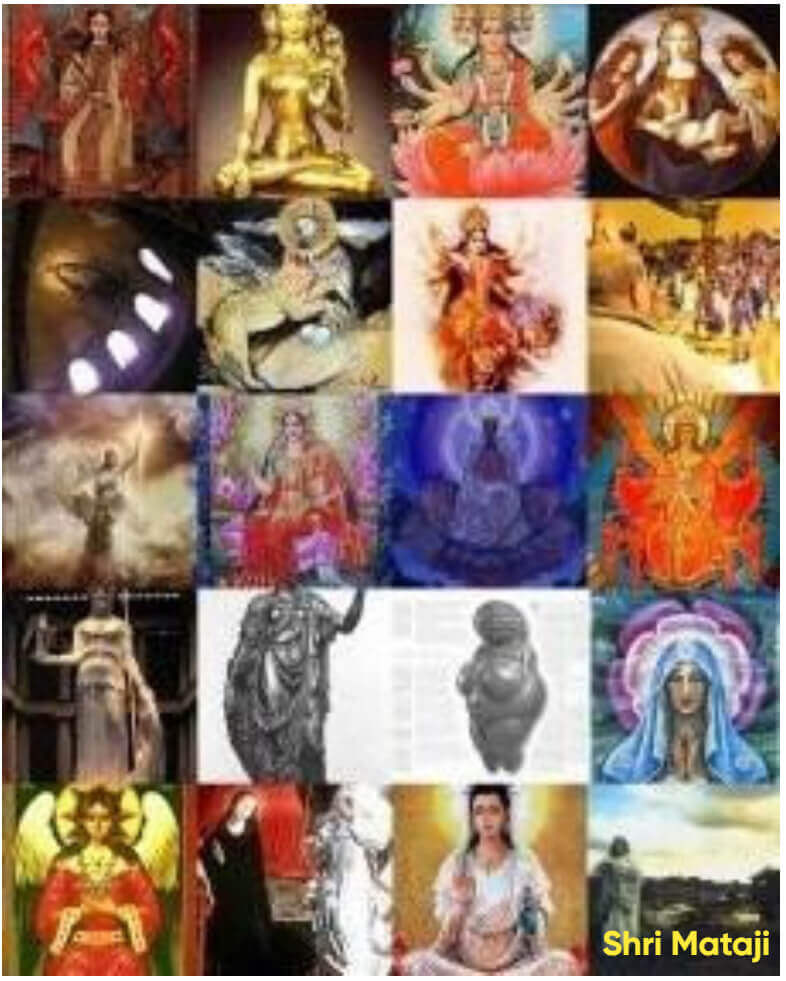THE INNER LIFE: The Sufi Message of Hazrat Inayat Khan
Those who live the inner life begin to see a law which is hidden from the average man. There is the law of nature which is known as science, and that of life which is called moral law; but beyond science and morals there is another law. It may be called occult law, or in other words inner law; a law which can be understood by an open heart and an awakened soul.
This law manifests to the view of the seer in many and varied forms; sometimes it appears in a quite contrary form to the effect that it has later on in its manifestation. The eye of the seer becomes a sword which cuts open, so to speak, all things, including the hearts of men, and sees clearly through all they contain; but it is a cutting open which is at the same time healing.
In the Qur'n it is said, 'He who taught with the pen, taught man that which he knew not.' And what does that mean? It means that to the man who lives the inner life, everything that he sees becomes a written character and this whole visible world a book. He reads it as plainly as a letter written by his friend. And besides this, he hears a voice within which becomes to him a language. It is an inner language; its words are not the same as the words of the external language. It is a divine language. It is a language without words, which can only be called a voice, and yet it serves as a language. It is like music, which is as clear as a language to the musician. Another person enjoys music, but only the musician knows exactly what it says, what every note is, how it is expressed and what it reveals. Every phrase of music to him has a meaning; every piece of music is a picture to him. But this is so only with a real musician.
Some people profess to have clairvoyance and clairaudience, and very often delude others by giving false prophecies; but the one who lives the inner life does not need to prophecy; he does not need to tell others what he sees and what he hears. It is not only that he is not inclined to do so, but also he sees no necessity for it; besides, he cannot fully express himself. How difficult it is to translate fully the poetry of one language into the poetry of another! Yet it is only interpreting the ideas of one part of the earth to the people of another part of the same earth. How much more difficult, then, it must be to translate or to interpret the ideas of the divine world to the human world! In what words can they be given? what phrases can be used for them? and after being given even in words and phrases, who would understand them? It is the language of a different world.
Therefore, when the prophets and seers of all ages have given to humanity a certain message and law, it was only the giving of a drop from the ocean which they received into their hearts. And this also is a great difficulty, for even this drop is not intelligible. Does every Christian understand the Bible? Does every Muslim know the Qur'n, or every Hindu the Vedanta? No, they may know the words of the verses, but not always the real meaning. Among the Muslims there are some who know the whole Qur'n by heart, but that does not fulfil the purpose. The whole of nature is a secret book, yet it is an open book to the seer. How can man translate it? how can man interpret it? It is like trying to bring the sea on to the land; one can bring it, but how much?
The understanding of this law gives quite a different outlook on life to the seer; it makes him more inclined to appreciate all that is good and beautiful, to admire all that is worth admiring, to enjoy all that is worth enjoying, to experience all that is worth experiencing. It awakens the sympathy of the seer to love, to tolerate, to forgive, to endure and to sympathize; it gives the inclination to support, to protect, and to serve those in need. But can he say what he really feels, how he really feels? No, he cannot say it even to himself.
Therefore the one who lives the inner life is all things; he is as a physician who knows things that a physician cannot know; an astrologer who knows much more than the astrologer; an artist who knows that which an artist could not know; a musician who knows what a musician does not know; a poet who knows what the poet cannot perceive. For he becomes the artist of the entire world, the singer of the divine song; he becomes an astrologer of the entire cosmos, which is hidden from the sight of men. He does not need outer things as the signs of knowing the eternal life. His very life is the evidence of the everlasting life. To him death is a shadow; it is a change; it is turning the face from one side to the other. To him all things have their meaning, every movement in this world: the movement of the water, of the air, of the lightning and the thunder and the wind. Every movement has a message for him, it brings to him some sign. To another person it is only the thunder, it is only a storm, but to him every movement has its meaning. And when he rises in his development, not only has every movement its meaning, but in and above every movement there is his command. It is that part of his life which brings him mastery.
Besides this, in all affairs of this world, of individuals and multitudes, which confuse people, which bring them despair, and cause them depression, which give joy and pleasure, which amuse them, he sees through all. He knows why it comes, whence it comes, what is behind it, what is the cause of it, and behind the seeming cause what is the hidden cause; and if he wished to trace the cause behind the cause he could trace back to the primal cause, for the inner life is lived by living with the primal cause, by being in unity with the primal cause. Therefore the one who lives the inner life, in other words, who lives the life of God, God is in him and he is in God.
The Sufi Message of Hazrat Inayat Khan
Shri Mataji: The Law of the Inner Life
The Law of the Inner Life is the quiet governance of the Spirit — a principle that lies beyond physical laws and moral codes and becomes visible only when the seeker enters the inner world by means of Self-Realization. Shri Mataji Nirmala Devi taught that this law is not exotic speculation but a living reality accessible through the awakening of the Kundalini, the divine Power that reveals the Kingdom of God within.
When the inner law reveals itself, the world changes its face. Nature no longer appears merely as mechanism or scenery; it becomes a living scripture. The rustle of leaves, the pattern of rain, the rise and fall of tides and moods — each movement speaks. To the seer, the whole visible world is as a book written in the language of vibration; to the realized heart, every event carries guidance, meaning, and compassion.
This inner language has no words in the ordinary sense. It is a language of silence and vibration — like music to the trained musician. A true musician does not simply enjoy sound; each phrase and cadence has precise meaning. So too, the awakened attention reads the subtlest notes of existence. Shri Mataji described this subtle perception as the "cool breeze" of the Spirit felt on the hands and across the central nervous system — a direct, incorruptible evidence of the inner law.
The seer's vision acts like a sword of truth: it cuts through ignorance and falsehood, yet the cut is healing. Illusions and attachments dissolve not by force but by exposure to light; what is false falls away and what is true is liberated. This is why the inner law bears fruit in virtues that are not coerced but spontaneous: compassion that does not calculate, forgiveness that does not wait for apology, endurance that rests in knowing, and joy that is simple and unearned.
A crucial feature of the inner law is its reticence. True vision does not need public theater. The one who lives the inner life is not driven to prove or to predict; the experience is its own proof. Language, rooted in the outer world, struggles to convey inner realities. Even prophetic utterances were only "drops from an ocean"; the seers handed humanity fragments. Sahaja Yoga, Shri Mataji taught, opens access to the ocean itself — not by negating scripture but by enabling direct experience that fulfills and deepens what scripture intimated.
Practically, living by this law reshapes how we act in the world: decisions become guided by inner silence and discernment; relationships are renewed by a compassion that understands hidden causes; creativity pours from a source rather than from technique; healing happens as attention and vibration align with truth. Death ceases to be an end and becomes a transition — a change of aspect in the continuity of the spirit.
Ultimately, the Law of the Inner Life is simply the law of union: God in us and we in God. It is the practical fulfillment of all sacred texts and the flowering of the human potential to live from the center rather than the surface. Shri Mataji's message was that this law is not reserved for elite mystics but is now available collectively: a living, verifiable principle that transforms fear into courage, darkness into insight, and separation into belonging.


